USA | Canada | UK | Ireland | Australia | New Zealand | India | South Africa | China
First published by Hudson Street Press, a member of Penguin Group (USA) LLC, 2014
Penguin supports copyright. Copyright fuels creativity, encourages diverse voices, promotes free speech, and creates a vibrant culture. Thank you for buying an authorized edition of this book and for complying with copyright laws by not reproducing, scanning, or distributing any part of it in any form without permission. You are supporting writers and allowing Penguin to continue to publish books for every reader.
While the author has made every effort to provide accurate telephone numbers, Internet addresses, and other contact information at the time of publication, neither the publisher nor the author assumes any responsibility for errors or for changes that occur after publication. Further, publisher does not have any control over and does not assume any responsibility for author or third-party Web sites or their content.
Introduction: A Bitter White Powder

P ropped up on my desk before me, there is a vacuum-sealed Ziploc bag of white powder. About the size of a compact disc, the package weighs one hundred grams. The powder is an alkaloid, extracted from the leaves and seeds of plants that grow at mid-elevations in low latitudes.
Chemists would recognize this substance as a methylated xanthine, composed of tiny crystalline structures. Biologically, the molecule is so useful that it emerged independently on four continents as an insecticide, keeping pests from nibbling on its host plants.
Lets get personalthis substance courses through my veins as I write these words. It is a drug, and I have been under its influence nearly every day for the past twenty-five years. And I am in good company. Most Americans take this drug daily. It is so effective, yet so simple, that if it did not grow on trees a neurochemist would have invented it.
This is, of course, caffeine, a bitter white powder. It is the essence of coffee or tea and the key ingredient in soft drinks, energy drinks, and energy shots. In moderation, caffeine is best known for something it does simply and effectively: It makes us feel good. But it is a drug whose strength is consistently underestimated. A sixty-fourth of a teaspoon, the amount in many soft drinks, will give you a subtle boost. A sixteenth of a teaspoon, about the amount in twelve ounces of coffee, is a good solid dose for a habituated user. A quarter teaspoon will lead to bodily unpleasantnessracing heart, sweating, and acute anxiety. A tablespoon will kill you.
Three years ago, when I decided to follow caffeine where it led me, I thought the drug was fantastic. Not only was it the easiest, cheapest way to rev up my day, increase my concentration, and boost my productivity; I felt sure that it must not be really bad for you (if it were, science would have revealed it by now) and that the industry must be pretty big. But as the story took me to the coffee farms of central Guatemala, the worlds largest synthetic caffeine factory in China, an energy shot bottler in New Jersey, and beyond, I learned that I had underestimated caffeine on all accounts.
I had underestimated the drugs effects on our bodies and brains. I had underestimated the scope and scale of the caffeine industry. And I had underestimated the challenges regulators face in trying to rein in an industry running wild.

Caffeine sharpens the mind, especially for people who are stressed, tired, or sick, whether they use it regularly or not. It was a neuroenhancer long before the term came into vogue. It does not just increase acuity; it can also improve mood. A review of the psychological effects of caffeine puts it this way: There is ample evidence that lower doses of caffeine are reliably associated with positive subjective effects.... The subjects report that they feel energetic, imaginative, efficient, self-confident, and alert; they feel able to concentrate, and are able to work but also have the desire to socialize.
Athletes using caffeine are stronger and faster than their drug-free peers. It has even helped Navy SEAL recruits perform better during the tryouts known as Hell Week, perhaps the most diabolical, arduous test of mental and physical fortitude ever devised. And its an effective treatment for hangovers.
Caffeine can make you stronger, faster, smarter, and more alert, but it is not quite the perfect drug. In some people, it can trigger severe and unpleasant psychological effects, such as acute anxiety and even panic attacks. These are most pronounced in people with genetic variants that make them more susceptible to caffeine. Any caffeine user who believes its totally benign should try going without it for a few days. Caffeine withdrawal is real and unpleasant, often including headaches, muscle pain, weariness, apathy, and depression. On a subtler level, many Americans fall into a routine of diminished sleep followed by large doses of caffeinea vicious circle.
Caffeine is not as powerful as cocaine, which can be deadly at just over a gram in inexperienced users. Youd need to slam about fifty cups of coffee at once, or two hundred cups of tea, to approach a lethal level of caffeination. But if you go straight for the powder, you can get a lot in a hurry. On April 9, 2010, Michael Bedford was at a party near his home in England. He ate two spoonfuls of caffeine powder hed bought online, washing them down with an energy drink. He soon began slurring his words, then vomited, collapsed, and died. Bedford likely ingested more than five grams of caffeine. The coroner cited caffeines cardiotoxic effects as the cause of death.
The caffeine conundrum is this: It can be a fantastic drugone of the very bestbut, like any powerful drug, it can cause problems with real consequences.

So, its safe to say that I had definitely underestimated the drugs psychomotor effects. But to a greater degree, I had underestimated the scope and scale of the caffeine industry. I learned that the addictive, largely unregulated drug is everywherein places youd expect it (like coffee, energy drinks, teas, colas, and chocolate) and in places you wouldnt (like orange sodas, vitamin tablets, and pain relievers).
I learned that brands such as Coca-Cola have ducked regulatory efforts for decades, even as they quietly use the drug to reinforce our buying patterns. I learned that consumers are uninformed about caffeine because Coca-Cola, Monster, 5-hour Energy, and even Starbucks persistently and systematically downplay the drugs importance.

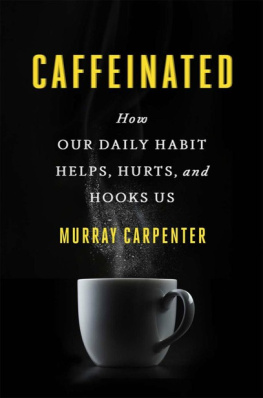
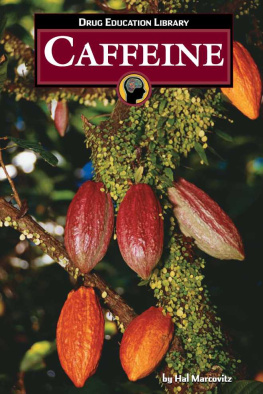
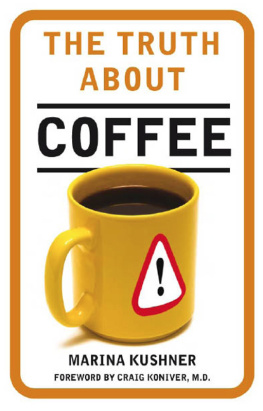
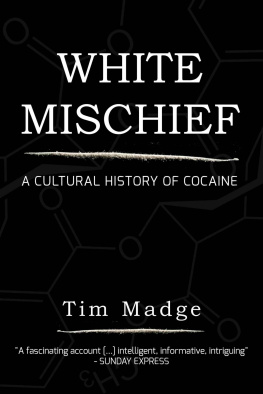

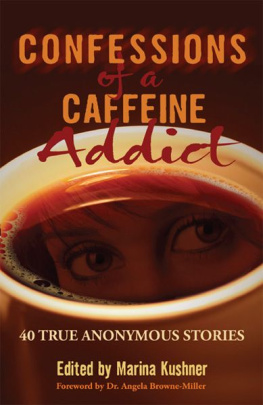
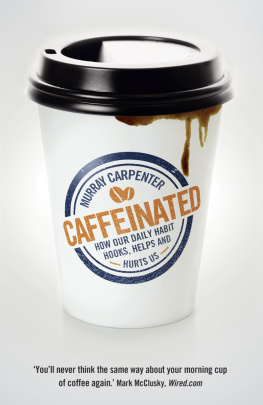
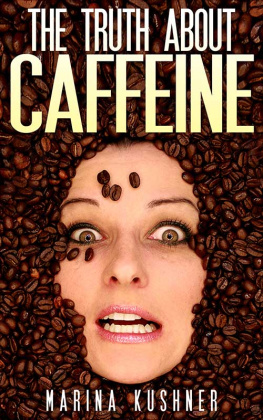
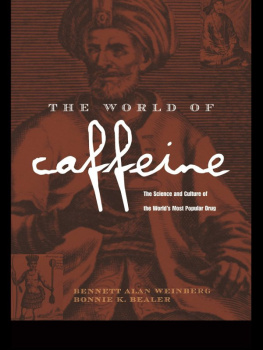

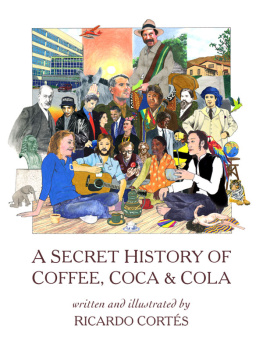
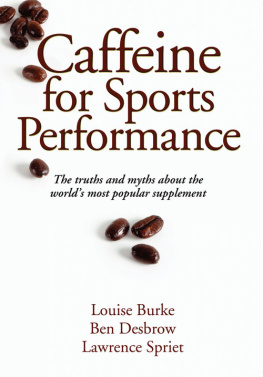
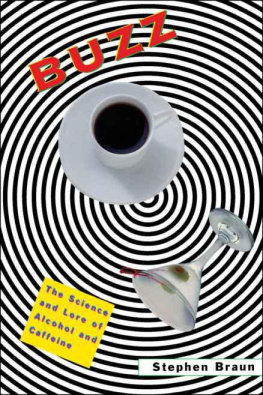


 REGISTERED TRADEMARKMARCA REGISTRADA
REGISTERED TRADEMARKMARCA REGISTRADA
